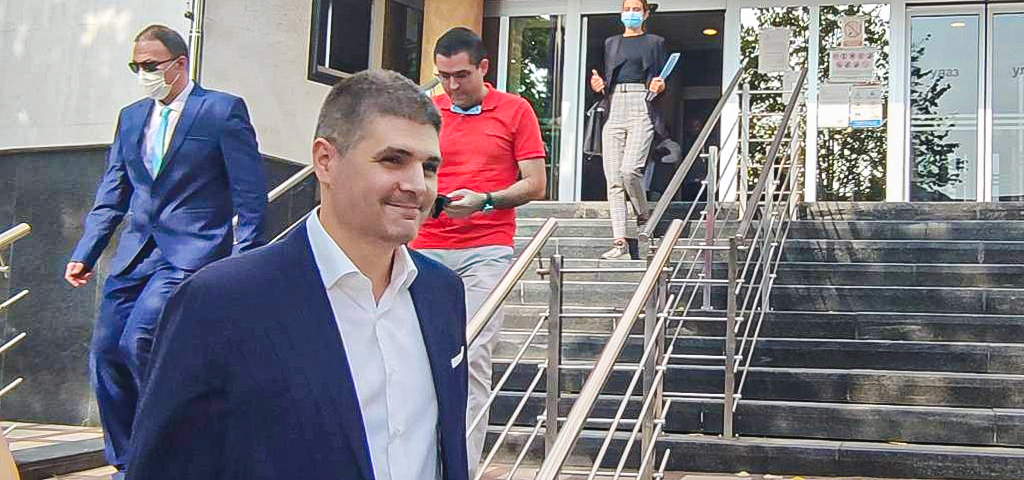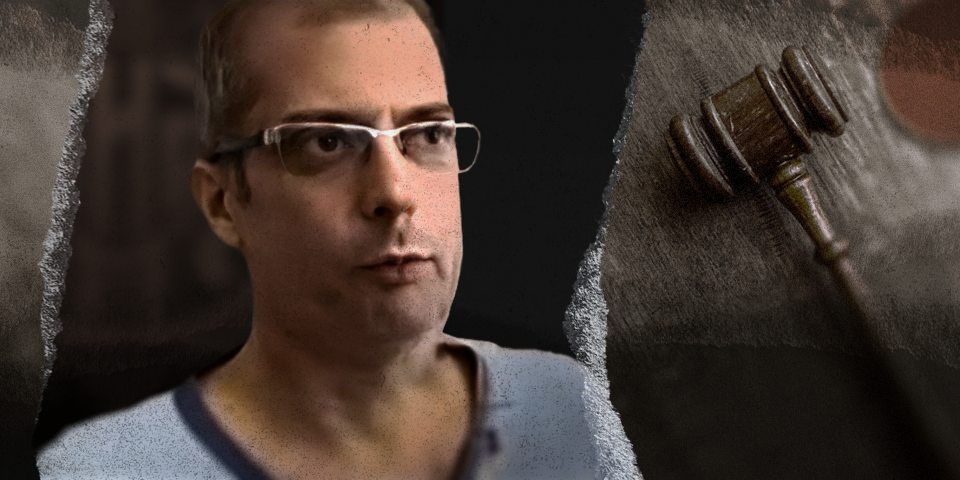KRIK found guilty in a court case issued by Predrag Koluvija
KRIK found guilty in a court case issued by Predrag Koluvija

Belgrade High Court Judge Bojana Čogurić found KRIK guilty for violating Predrag Koluvija’s right to the presumption of innocence in an article that announced the start of the trial, ”Jovanjica 2”, in which he is the first accused. KRIK has appealed this first-instance verdict and expects the appellate court to reverse the decision or dismiss the charges.
Author: Bojana Jovanović
Predrag Koluvija, who is on trial on suspicion of heading an organized crime group that produced more than 1.5 tons of marijuana, has filed two lawsuits against the Crime and Corruption Investigation Network (KRIK) in 2021, claiming its reporting on the trial has damaged his reputation and caused him emotional distress.
In the lawsuits, Koluvija claimed KRIK violated his presumption of innocence by describing him as an “accused narco boss”. Since the publication of the articles, the businessman says his neighbors have started to actively avoid him, even refusing to be in the same elevator. He also claims that bank employees won’t answer his calls or open accounts for him.
He appeared in the courtroom accompanied by his attorney Vladimir Đukanović, a prominent member of the Serbian Progressive Party (Srpska napredna stranka), who is also the president of the Judiciary Parliamentary Committee, a body that has a role in the selection of judges and prosecutors.
KRIK’s editor Stevan Dojčinović explained in court that journalists cannot use long, incomprehensible legal formulations in their articles, but rather colloquial terms that clearly explain the meaning to the readers.
“If we had used only legal terms when we mentioned Koluvija, we would have had to write that he is accused as the organizer of an organized crime group whose goal was to commit the criminal offense of unlawful production and circulation of narcotics,” Dojčinović explained.
KRIK’s editor stated that he thought the texts appropriately described Koluvija in accordance with the practices of notable international news outlets.
“The world’s largest media, outlets like The Washington Post, The Guardian, Reuters, report in the same way in similar situations, i.e. they use the term ‘accused narco boss’ in English when reporting on the main defendants in major trials on organized crime”, Dojčinović explained and provided the court with examples of articles published by these media.
Dojčinović also pointed out that it would be hard to imagine Koluvija was offended solely by KRIK’s articles, because other media, as well as state representatives, wrote about him in a more offensive manner. However, Koluvija did not sue them.
“At the press conference, Minister (Nebojša) Stefanović marked the plaintiff (Koluvija) as a drug manufacturer, Prime Minister (Ana) Brnabić referred to him as a drug trafficker. President (Aleksandar) Vučić stated that the plaintiff didn’t kill anyone, but that he did have a ton and a half of marijuana,” Dojčinović said at the trial.
Journalist associations emphasized earlier that KRIK did not violate the presumption of innocence, and pointed out that Koluvija’s claims were intended to pressure the journalists to stop writing about the Jovanjica case, one of the biggest and most important cases in the country.
However, Judge Bojana Čogurić, who was the judge in one of these two proceedings, decided otherwise.
“The Court took a stand that the plaintiff was labeled as a ‘narco boss’, therefore guilty, before the end of the criminal proceedings, which can equally end with both his conviction and his acquittal”, Čogurić wrote in the verdict from the beginning of August.
Čogurić ruled that the editorial office and Dojčinović must pay Koluvija 89,800 dinars for emotional distress and to compensate the attorney’s fees.
This is a first-instance verdict and KRIK has appealed it. The Court of Appeal in Belgrade will decide on the case next.
The trial involving Koluvija’s second claim is ongoing and a verdict has not yet been reached.
This is the third ruling in which KRIK was found guilty for articles it published.
The newsroom was previously convicted in SLAPP lawsuits filed by Minister of Police Bratislav Gašić and the heads of the Police Witness Protection Unit.
There are currently eight other proceedings against KRIK and its journalists. In addition to the aforementioned, the editorial office was also sued by former MIA State Secretary Dijana Hrkalović, controversial businessman Bogoljub Karić, businessman with criminal connections Stanko Subotić, the best man of President Aleksandar Vučić Nikola Petrović, Mineco Company, and others.



